Profile of Commissioners
Chairman YAMANAKA Shinsuke
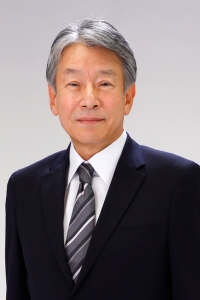
Curriculum Vitae
- Date of Birth
- December 1955
- November 1989
- Doctor of Engineering, Osaka University
- December 1994
- Associate Professor, Department of Engineering, Osaka University
- May 1998
- Professor, Graduate School of Engineering, Osaka University
- April 2010
- Director, Frontier Research Center,
Graduate School of Engineering, Osaka University - April 2016
- Director, Open Innovation Education Research Center,
Graduate School of Engineering, Osaka University - August 2016
- Vice-President /Trustee, Osaka University
- August-September 2017
- Professor, Graduate School of Engineering, Osaka University
- September 2017
- Commissioner, the Nuclear Regulation Authority, Japan
- September 2022
- Chairman, the Nuclear Regulation Authority, Japan
Activities
As a leading researcher, Dr. YAMANAKA dedicated himself to research in the field of nuclear engineering and radioactive fuel engineering and materials, such as fuel safety research related to severe nuclear reactor accidents.
Dr. YAMANAKA has contributed to promoting nuclear regulations and nuclear research as a member of NRA’s Nuclear Fuel Safety Examination Committee and NRA’s Technical Committee on Backend, and a program officer of MEXT’s Nuclear Safety System R&D Project.
Message
The Nuclear Regulation Authority of Japan was established as an independent regulatory authority based on lessons learned from the 2011 Fukushima Daiichi nuclear accident. Since that time, we have made tireless efforts to ensure transparency and implement regulatory measures reflecting the latest domestic and international information and lessons.
The Fukushima Daiichi nuclear accident is still fresh in our memory. The NRA has maintained a keen sense of mission and responsibility at the highest levels, but it is also true that, as human beings, we tend to forget things over time. Thus, it is essential to engrave the lessons learned from Fukushima in the NRA’s institutional memory rather than just personal reflections.
We must avoid lapsing into a mind-set of self-satisfaction and recognize that the pursuit of the highest safety standards is our highest, ongoing priority. I am determined to do my best to instill widespread confidence in our nuclear safety regulations based on independence and transparency.
Commissioner TANAKA Satoru
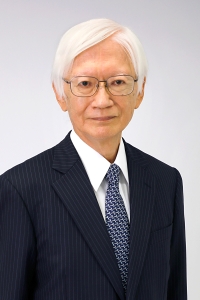
Curriculum Vitae
- Date of Birth
- March 1950
- March 1977
- Doctor of Nuclear Engineering, The University of Tokyo
- December 1977
- Research Associate, Department of Nuclear Engineering, Faculty of Engineering, The University of Tokyo
- October 1981
- Associate Professor, Nuclear Engineering Research Laboratory, Faculty of Engineering, The University of Tokyo
- February 1994
- Professor, Department of Quantum Engineering and System Science, School of Engineering, The University of Tokyo
- April 2008 - September 2014
- Professor, Department of Nuclear Engineering and Management, School of Engineering, The University of Tokyo
- September 2014
- Commissioner, the Nuclear Regulation Authority, Japan
- September 2017
- Commissioner (Deputy Chairman), the Nuclear Regulation Authority, Japan
Activities
Dr. TANAKA has dedicated his effort to the research of nuclear fuel cycles and radioactive waste at the postgraduate research institute of the University of Tokyo. Dr. TANAKA is a leading researcher in the field of nuclear energy, and is Professor Emeritus of the University of Tokyo.
Dr. TANAKA founded the ‘Fukushima Special Project’ as the President of the Atomic Energy Society (AES) of Japan and contributed to the reconstruction of Fukushima as a Decontamination Advisor to Fukushima Prefecture.
As Chairman of AES’s Investigation Committee on the Fukushima Daiichi Nuclear Accident, Dr. TANAKA coordinated root cause analyses and recommendations of AES.
Message
I am determined to dedicate myself to securing nuclear safety, mindful of the purpose of the NRA to contribute to protecting the lives, health, and property of our citizens and to preserve the environment. Making judgments based on scientific knowledge and on-site observation are vital for this task, and I will utilize all my knowledge and experience as well as take into account the latest findings and developments in the field of nuclear regulation. Furthermore, I will exercise my vigilance to avoid any further risks during decommissioning work at TEPCO’s Fukushima Daiichi NPS and off-site environmental restoration.
Commissioner SUGIYAMA Tomoyuki
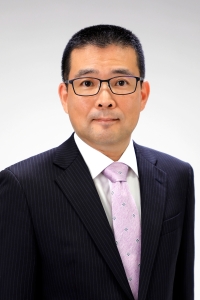
Curriculum Vitae
- Date of Birth
- May 1968
- March 1996
- Ph. D., Graduate School of Engineering, Tokyo Institute of Technology
- April 1996
- Joined Japan Atomic Energy Research Institute (JAERI)
- July 2010
- Principal Researcher, Fuel Safety Research Group, Nuclear Safety Research Center, Japan Atomic Energy Agency (JAEA)
- April 2014
- Specialist, Regulatory Standard and Research Division, Nuclear Regulation Authority(NRA)
- April 2016
- Senior Principal Researcher, Nuclear Safety Research Center / Leader, Severe Accident Evaluation Research Group, JAEA
- April 2018
- Head, Risk Analysis and Applications Research Division, Nuclear Safety Research Center, JAEA
- April 2020
- Head, Reactor Safety Research Division, Nuclear Safety Research Center, JAEA
- April 2022
- Deputy Director General, Nuclear Safety Research Center, JAEA
- September 2022
- Commissioner, Nuclear Regulation Authority, Japan
Activities
Dr. SUGIYAMA worked on research for nuclear reactor safety and risk assessment at JAERI and JAEA.
As a leading expert in the field of nuclear reactor and fuel, Dr. SUGIYAMA contributed to international activities such as the Halden Reactor Project, the Committee on the Safety of Nuclear Installations (CSNI), and the Working Group on the Analysis and Management of Accidents (WGAMA) of the Organisation for Economic Co-operation and Development/Nuclear Energy Agency (OECD/NEA).
As a seconded staff to NRA, Dr. SUGIYAMA engaged in conformity review of commercial power reactors to the new regulatory requirements concerning severe accident.
Message
Without forgetting the regret and sense of powerlessness in face of the accident at TEPCO’s Fukushima Daiichi Nuclear Power Station, I would like to make use of the knowledge and experience I have gained so far and fulfill my responsibilities sincerely as a commissioner of the NRA. In addition, I will engage in the NRA's activities, always being aware of a series of role; taking over the NRA's 10-year achievements, addressing the remaining challenges and new challenges that will emerge in the future, and delivering better things to the future.
Commissioner BAN Nobuhiko
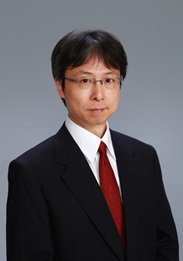
Curriculum Vitae
- Date of Birth
- July 1963
- March 1988
- Completed a master’s degree at Graduate School of Medicine, the University of Tokyo (Master of Health Science)
- April 1988
- Entered Power Reactor and Nuclear Fuel Development Corporation
- April 1993
- Research Associate, Faculty of Medicine, the University of Tokyo
- April 1998
- Ph.D. in Medical Science, The University of Tokyo
- April 1998
- Assistant Professor, Faculty of Nursing, Oita University of Nursing and Health Sciences
- April 2004
- Associate Professor, Faculty of Nursing, Oita University of Nursing and Health Sciences
- April 2011
- Professor, Faculty of Nursing, Tokyo Healthcare University
- September 2015
- Commissioner, the Nuclear Regulation Authority, Japan
Activities
As a member of Committees 1 and 4 of the International Commission on Radiological Protection (ICRP) and Japanese delegation to the United Nations Scientific Committee on the Effects of Atomic Radiation (UNSCEAR), Dr. BAN has been involved in international reviews and discussions on radiation effects and protection.
As a leading expert in radiation effects and radiological protection, he worked with governmental and institutional committees to address issues of radiation exposure and its health effects.
Dr. BAN chaired Steering Committee on “Q&A about Radiation in Daily Life” of Japan Health Physics Society and coordinated its activities. He has worked to disseminate scientific knowledge about the effects and risks of radiation.
Message
The ultimate purpose of safety regulation is to protect humans. As for radiation safety, it means to protect people from harm of radiation exposure. The experience of Fukushima Daiichi Accident indicates that the issue should not be confined to biological effects to humans, but should be taken from the perspective of people living in the society. I will do my best at every single task, giving due consideration of radiation risks on a scientific basis and keeping human dimension in mind.
Commissioner ISHIWATARI Akira
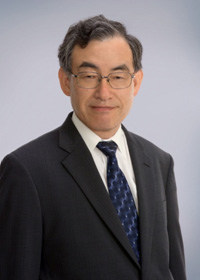
Curriculum Vitae
- Date of Birth
- April 1953
- March 1981
- Doctor of Science, the University of Tokyo
- April 1982
- Maître Assistant Associé of Université Pierre et Marie Curie (Paris 6)
- January 1986
- Assistant Professor, Department of Science, Kanazawa University
- June 1992
- Associate Professor, Department of Science, Kanazawa University
- July 2003
- Professor, Department of Science, Kanazawa University
- April 2008-September 2014
- Professor, Center for Northeast Asian Studies, Tohoku University
- September 2014
- Commissioner, the Nuclear Regulation Authority, Japan
Activities
As a leading researcher in the field of geology, Dr. ISHIWATARI served as the President of the Geological Society of Japan in 2012-2014 and has been a Fellow of the Geological Society of America since 2014.
Dr. ISHIWATARI made contributions to the activities of NRA, such as serving as the Chairman of the Peer Review Meeting on assessment reports from the ‘Expert Meeting on the Investigation of Fracture Zones in nuclear power plants’ and participating in the field investigations of fracture zones.
Message
Earthquakes, tsunamis and volcanic activities are natural hazards that potentially cause catastrophic disasters beyond our expectations. In harnessing awesome powers of nuclear energy, mankind must prepare for these risks with profound scientific understanding. As a scientist in this field, I am determined to dedicate myself to nuclear safety to help prevent any future disasters such as the events at Fukushima.



